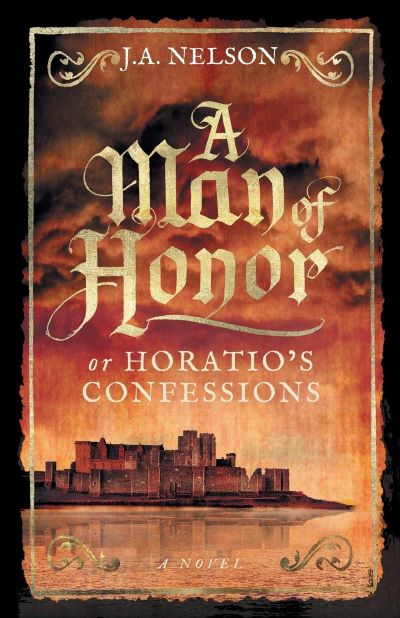review copy provided by Harper One via TLC Book Tours
Synopsis:
According to Cherished Church tradition and popular belief, before the Emperor Constantine made Christianity legal in the fourth century, early Christians were systematically persecuted by a brutal Roman Empire intent on their destruction. As the story goes, vast numbers of believers were thrown to the lions, tortured, or burned alive because they refused to renounce Christ. These saints, Christianity’s inspirational heroes, are still venerated today.
In The Myth of Persecution, Candida Moss reveals that the “Age of Martyrs” is a fiction—there was no sustained three-hundred-year-long effort by the Romans to persecute Christians. Instead, these stories were pious exaggerations; highly stylized rewritings of Jewish, Greek, and Roman noble death traditions; and even forgeries designed to marginalize heretics, inspire the faithful, and fund churches.
The traditional story of persecution is still taught in Sunday school classes, celebrated in sermons, and employed by church leaders, politicians, and media pundits who insist that Christians were—and always will be—persecuted by a hostile, secular world. Moss urges modern Christians to abandon the conspiratorial assumption that the world is out to destroy the church and, rather, embrace the consolation, moral instruction, and spiritual guidance that these martyrdom stories provide.
My Take:
I think I’m coming at this review of –or more accurately, my response to - The Myth of Persecution by Candida Moss a bit differently from some of the other reviewers on this book tour. I don’t blog about religion or topics of faith. While I do read non-fiction, I don’t usually review non-fiction. This is an interesting subject and pertains to issues that are important today. I find religious history endlessly fascinating. This book was a wonderful opportunity to see what a New Testament and Early Christianity scholar has to say about an aspect of Christianity that has bothered me for some years – the idea that there is a “war on Christianity” being waged today, that Christians are being persecuted in some concerted manner. This book answered so many questions that I've had about the early Church.
The Myth of Persecution is a book for a general audience, so it is very accessible, easily understood and while there are end notes (thank you for this – I love end notes) , they are not excessive. The Introduction to the book is quite clear on the author's arguments and how the book will progress. There are eight chapters and Candida Moss does an excellent of explaining her argument in each chapter and then giving evidence to support it.
In the first chapter, Moss addresses the word “martyr”, its meaning, its history and the idea of martyrdom. I found the history of the word martyr and how it morphed into its current meaning to be very important and so interesting. I am a big supporter of looking at the history of terms and how their usage changes over time. This chapter examines the idea of martyrdom and exactly what that word means and whether it can be applied to other people besides Christians.
Keep in mind that Moss does not say that there were not Christian martyrs. Yes, there were martyrs, yes they were persecuted – but not in the numbers and in the sustained and concentrated way that we learned about in Sunday school or heard from the pulpit. These stories were told and written down for a specific reason – usually to encourage orthodox behavior by using the martyr as a shining example of the correct way to behave.
I can’t decide which chapter is my favorite: Chapter Four “How Persecuted Were the Early Christians?” or Chapter Five “Why did the Romans Dislike Christians?” For me, these two chapters really make the arguments for the whole book. They examine the difference between “prosecution” and “persecution” and how both of these terms the applied to the early Christians. These chapters deal with the need to understand Roman laws and what behaviors would have been illegal and therefore warrant prosecution – as opposed to persecution. The chapters also deal with the general attitudes of the day and how different early Christians sometimes acted and how this could cause problems.
Some people probably won’t want to believe some of the evidence Moss has cited in this book, but that doesn't make it untrue. We need to be able to read about the history of Christianity and accept historical facts as facts and not as an attack on faith. I feel that Moss is very balanced, and even-handed in covering this topic.
The only minor issue I had with the book was that I would have liked Moss to give more contemporary examples of the idea of the persecution of Christians today and the dangerous aspects to this belief. Examples are given, but I would like to see a few more.
So, I’m sure it is pretty evident that I really like this book. I have discussed it with my husband and I am recommending it to friends and family. I think my book club would be especially open to this book. I can’t wait to discuss it with them. If you enjoy history and are open to learning about early Christianity, you should really get your hands on a copy of The Myth of Persecution. I am sure this is a book I will refer back to again and again.
 |
| My copy of The Myth of Persecution with all my tabs. |
You can watch Candida Moss explain what the book is about in this video clip.
About Candida Moss
Candida Moss is professor of New Testament and Early Christianity at the University of Notre Dame. A graduate of Oxford University, she earned her doctorate from Yale University. A frequent contributor to the National Geographic Channel, Moss is the award-winning author of several scholarly works on martyrdom, including The Other Christs and Ancient Christian Martyrdom. She lives in South Bend, Indiana.Visit Moss at her website, connect with her on Facebook, and follow her on Twitter.
Candida’s Tour Stops
Wednesday, March 6th: RMPWednesday, March 6th: A Philosopher’s Blog
Thursday, March 7th: A Book Geek
Saturday, March 9th: The Musings of Thomas Verenna
Monday, March 11th: Aspire2
Tuesday, March 12th: Earliest Christianity
Thursday, March 14th: Do You Ever Think About Things You Do Think About?
Monday, March 18th: The Way Foreward
Tuesday, March 19th: The Dubious Disciple
Wednesday, March 20th: Exploring Our Matrix
Thursday, March 21st: The Gods Are Bored
Monday, March 25th: Broken Teepee






I too just finished this book and really enjoyed it (and marked it full of notes for future reference)
ReplyDeleteAs a Christian, I can see the controversy it has and will continue to cause. That said, I think it's essential reading for Christians who rely on the history of martyrs / claim of persecution in modern day political dialogue. It really lays out the true meaning of it and does so in a rather easy to read style.
I like the idea of going back to contemporary scholars for their take on the events of the early church. It sounds like this is a fascinating read!
ReplyDeleteThanks for being on the tour.